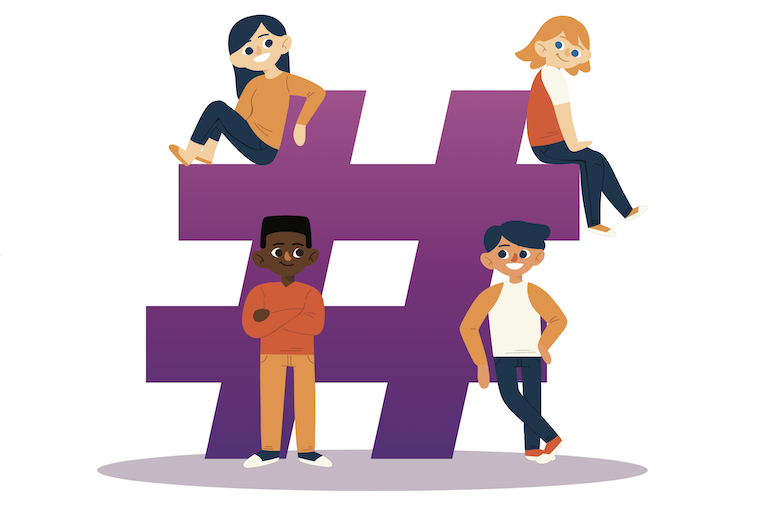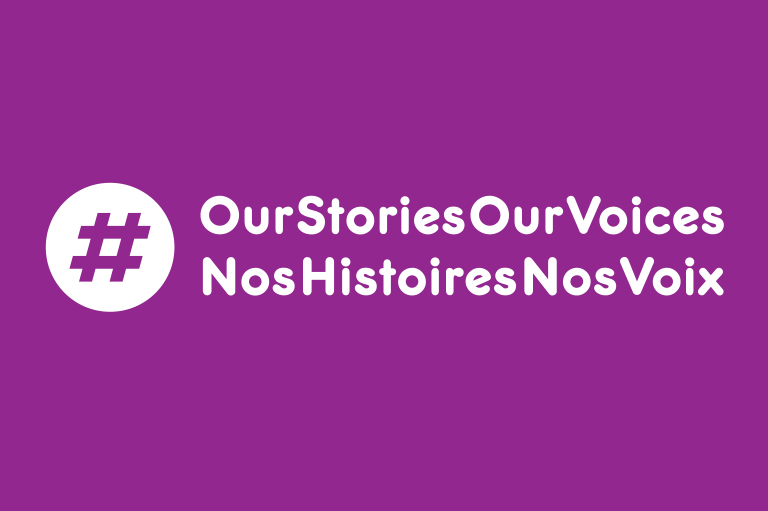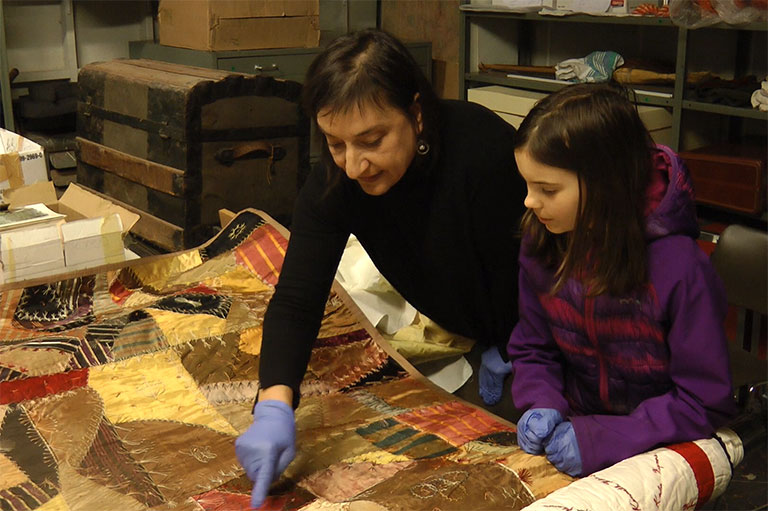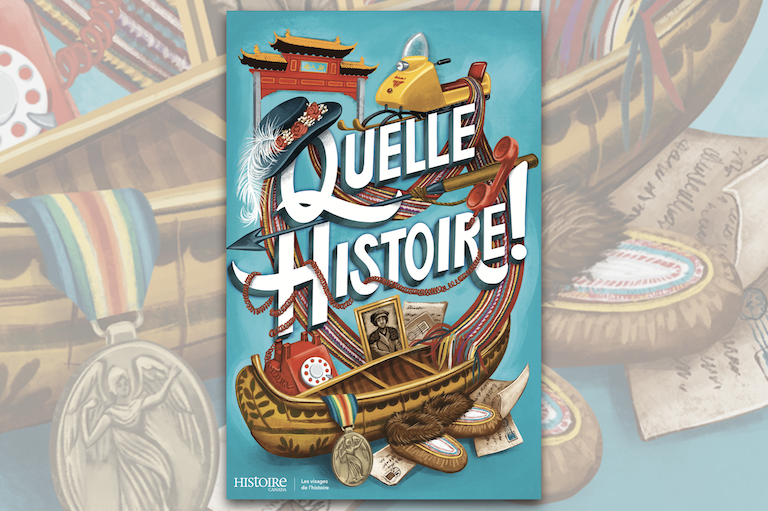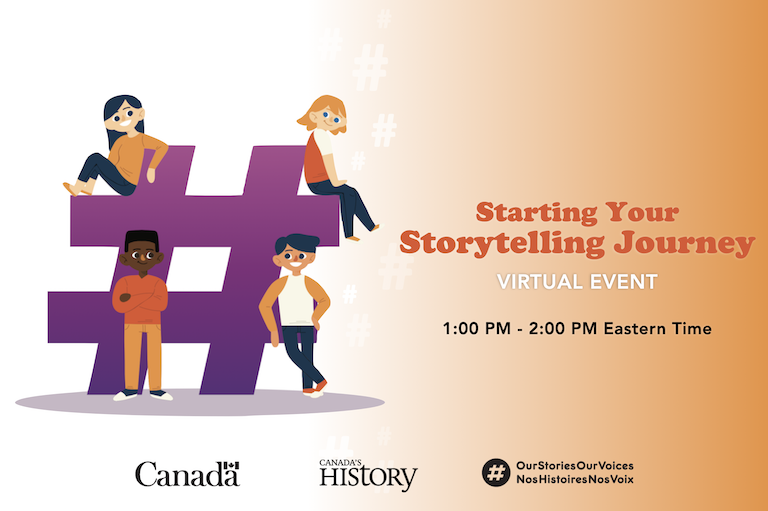Starting off on the Right Foot (Choosing a Topic and Creative Response that Work Together)
Before starting, it is recommended that you familiarize yourself with the #OurStoriesOurVoices national contest description and criteria.
Download a PDF of this handout.
Choosing a Topic
How do I know which topic to choose?
You are encouraged to consider a few different topics before committing to one. Sometimes, new elements come to light as you’re doing your initial research, and you may find inspiration where you least expect it. Think of research as an ongoing process that takes place before, during, and after choosing your topic rather than a single step.
Your topic should represent a person, place, event, or thing in your community (Reminder: there are varying definitions of “community”) and be interesting to you, or something you would like to learn more about. Your topic can be on anything as long as you can argue for its historical significance to Canada.
Can you argue for the historical significance of your topic and back it up with reliable evidence?
What if I choose a topic and get stuck?
Asking for help is your best resource. If after doing preliminary research (i.e. through books, the internet, etc.) you find yourself stuck, ask librarians, teachers, history experts (e.g. people who work and volunteer at museums/heritage organizations), locals, Elders, peers, or other community figures to help point you in the right direction. They may know of a great archive, database, book, newspaper article, or simply the right person to talk to.
You should incorporate the most important pieces of information about your topic in a concise manner, which can be tricky. Remember, #OurStoriesOurVoices is not about giving a broad overview of a topic, but rather arguing for its historical significance.
What are the most important pieces of information that support your argument?
Planning a Creative Response
Does it matter which creative response I choose?
You are encouraged to select a creative response that you think best suits your topic. Here are two different approaches you might take:
- Would your particular topic be better understood using a certain creative response? Are there any creative responses that may limit an understanding of your topic? Think sounds, visuals, style, tone (e.g. empowering, sombre, quirky), whether or not the topic is personal to you, etc.
- Utilize the resources you have at your disposal and take the opportunity to hone your existing skills in video editing, writing, singing, drawing, public speaking, etc. — or challenge yourself to try something new.
Additional Tips
- Always keep track of your sources so you can reference them properly (style guides will vary). If you are unsure about a source, ask a peer or teacher.
- Use images and music that are in the public domain or get permission from copyright holders. If you’re unsure about copyright, ask a peer or teacher.
- You can use free software for video editing (e.g. iMovie, Video editor for Windows) and audio editing (e.g. GarageBand, Audacity), or any other software you’re familiar with or already have.
- Look up best practices for public speaking or filming/recording to give your project an extra edge.
- Double check your submission for any spelling, grammar, or editing errors. It’s a good idea to have someone else look over your submission, too.
- Have fun and let your creativity flow!

